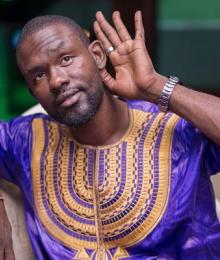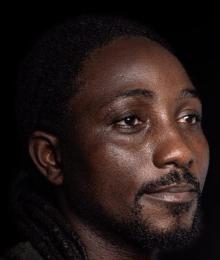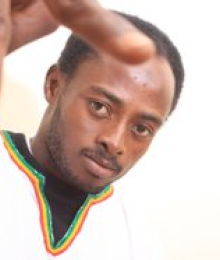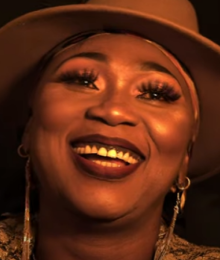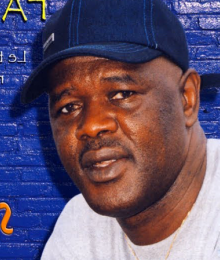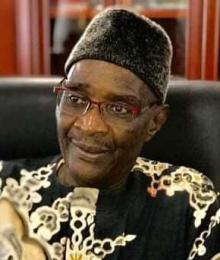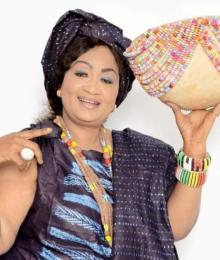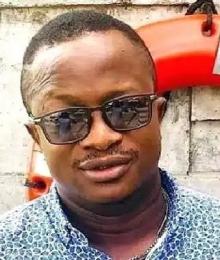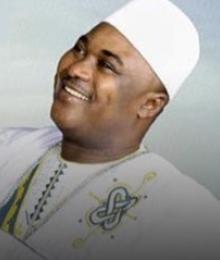
Sékouba Kandia Kouyaté is an emblematic figure of traditional Guinean music, son of the legendary Sory Kandia Kuyaté, nicknamed "the voice of the revolution". Born in 1964 in Conakry, this versatile artist first started as a percussionist before devoting himself to the kora, the traditional harp instrument of West Africa, of which he became an undisputed master.
With its unique blend of ancient Mandingue styles and contemporary influences, Sékouba has conquered scenes around the world, recording about a dozen albums including the famous double album "Memory of the Future" and "Kouma" in 2018. Today, he perpetuates the legacy of the griots as the director of the National Instrumental Ensemble of Guinea, sharing his passion for preserving the rich Mandinga culture through his vibrant and energetic performances.
Introduction
Sékouba Kandia Kouyaté is a must-see icon of traditional Guinean music. Born in 1964 in Conakry, Guinea, he is the son of the legendary singer and voice of the Guinean revolution, Sory Kandia Kouyaté. Raised in a rich Mandinga family, Sékouba embraced the path of music from an early age, starting as a percussionist before becoming an undisputed master of the kora, the traditional harp instrument of West Africa.
Childhood and Education
Sékouba Kandia Kouyaté, born from a line of griots (historians and cultural depositaris in West Africa), grew up in the Gbessia neighborhood of Conakry, bathed in the melodies and enchanting rhythms of Mandingue music. Despite the initial resistance of his father, who wanted to see him pursue his academic studies, Sékouba's devouring passion for music was unshakeable. He listened in secret to the records of his illustrious parent, weeping of emotion in the face of the beauty of these works.
Musical career
The musical career of Sékouba Kandia Kouyaté really took off in 1979, two years after the death of his father. He first joined small local bands such as "Mouvement Pionnier" and "Les Héritiers", before forming his own band, Tabaro, along with his brother Kaabi Kandia Kouyaté, his uncle N'Faly Koujaté, as well as musicians Doura Barry and Fodé Baro. With the support of Justin Morel and Bamba Emile Mato Zomou, Sékouba recorded his first song, "Miriakoura", on the Radio Voice of the Revolution.
In 1985, a year after the death of Sékou Touré and the rise to power of Lansana Conté, Sécouba saw a turning point in his career. In the absence of appropriate instruments, he sought the help of President Conté, who offered him a new range of modern instruments. This opportunity propelled Sékouba on the international stage, and he spent about five years in the United States, performing at ceremonies and rallies, while preparing to return to Guinea to pursue his dream of becoming an iconic star of Guinean music.
Upon returning to Guinea, Sékouba Kandia Kouyaté became a hit with the release of her album "Sékouva Kandia Kuyaté et Les Héritiers", thanks in particular to the video clip for her flagship song "Kandia Dénkè". This clip, in which one could admire his striking resemblance to his late father, captivated the crowd and opened the doors of fame to Sekuba. Since then, he has performed at numerous festivals and musical events around the world, consolidating his reputation as a leading figure in Guinean and West African music.
Although his beginnings were influenced by contemporary sounds, Sékouba Kandia Kouyaté gradually fully embraced the Mandingue musical traditions. Her 2018 double album, "Memory of the Future" and "Kouma", marked a decisive turning point, skillfully blending heritage works with her own compositions. From now on, Sékouba is mainly dedicated to traditional instrumental music, seeking to transmit the Mandinga cultural heritage to future generations through his rich performances in choreographies, narratives and songs.
Discography
Albums
- 1990 - Sékouba Kandia Kouyaté et Les Héritiers
- 2003 - Lon Kacia
- 2016 - La Mémoire du Futur Vol. 1
- 2016 - La Mémoire du Futur Vol. 2
- 2020 - Classic Vol. 1
- 2020 - Classic Vol. 2
- 2021 - Kuma
- 2022 - Sarama
Singles
- 1979 - Miriakoura
- 2016 - Beye Kelebila
- 2012 - Touyende
Collaborations
Thro his prolific career, Sékouba Kandia Kouyaté has collaborated with many artists and groups, both in Africa and internationally. Among his most notable collaborations is that with his wife, singer Sona Tata Condé, with whom he formed a respected musical duo.
Tours
Sékouba Kandia Kouyaté has performed in numerous events and festivals across Guinea, perpetuating the tradition of griots by telling the story of his people through his singing and captivating stage performances.
Sékouba Kandia Kouyaté's fame has gone beyond the borders of Guinea, leading him to perform on the most prestigious stages around the world. He has toured the United States, Europe and other parts of Africa, sharing the richness of Mandingo music with an international audience.
Prizes and Rewards
The exceptional talent of Sékouba Kandia Kouyaté has not gone unnoticed, and he has been rewarded on numerous occasions for his contributions to Guinean and African music. In 2019, he received the prestigious National Heritage Fellowship from the National Endowment for the Arts of the United States, the highest distinction awarded to traditional artists in the country. He has also been honoured by the French government with the Order of the Arts and Letters, as well as the Womex Artist Award, outstanding testimony to his impact on the world music scene.
Private life
Sékouba Kandia is the son of the legendary Sory Kandia Kouyate, nicknamed "the voice of the Guinean revolution". Although his father did not initially encourage his musical career, preferring that he focus on his studies, Sékouba found inspiration and motivation in the musical heritage of his illustrious parent.
In 1998, Sékouba Kandia Kouyaté married Sona Tata Condé, herself from a line of renowned musicians. Their union not only sealed their love but also gave rise to a fruitful musical partnership, with Sona Tata performing regularly alongside her husband on stage.
Sékouba Kandia Kouyaté and Sona Tata Condé form a couple, bring together several children and lead a prosperous family life. Despite the challenges inherent in the life of an artist, Sékouba attaches great importance to his family and strives to transmit the Mandinga cultural values to his children, thus perpetuating the legacy of which he is the worthy representative.
Conclusion
Sékouba Kandia Kouyaté is much more than just a musician; he is an ambassador of Manding culture, a keeper of tradition who has skillfully combined ancestral sounds with contemporary influences. Her exceptional career, marked by remarkable successes and prestigious awards, makes her a true icon of Guinean and West African music.
But beyond his artistic achievements, it is his unwavering dedication to preserving and passing on the cultural heritage of his people that makes Sékouba Kandia Kouyaté an artist of capital importance. With his powerful voice, captivating performances and unwavering commitment, he continues to inspire and marvel audiences around the world, proudly bringing the flag of Mandingo music to new heights.
In short, Sékouba Kandia Kouyaté is not only a talented musician, but a true national treasure of Guinea, a bridge between ancestral traditions and modernity, a grit of modern times that perpetuates the legacy of its illustrious predecessors while tracing its own unique and distinctive path. His musical and cultural legacy will remain engraved in the annals of Guinea and African history, inspiring future generations to embrace their rich heritage with pride and passion.














